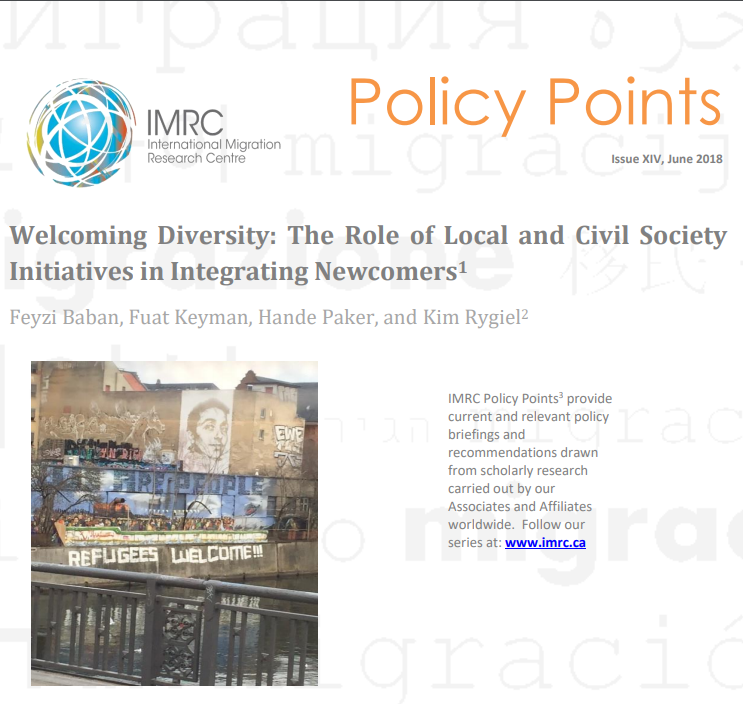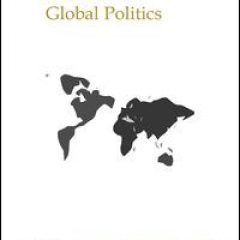Welcoming Diversity: The Role of Local and Civil Society Initiatives in Integrating Newcomers
by Feyzi Baban, Fuat Kyman, Hane Paker, and Kim Rygiel, 2018.
The question of how to live together with newcomers has become a policy issue of utmost concern.
Issue 14 of the International Migration Research Centre’s Policy Points Series: Welcoming Diversity: The Role of Local and Civil Society Initiatives in Integrating Newcomers
In a global context marked by growing international forced displacement and migration, societies are becoming increasingly more diverse. The question of how to live together with newcomers has become a policy issue of utmost concern. While populist governments in Europe and in the United States are failing to offer citizens and newcomers alternative models for living together that encourage greater ethnic, cultural and religious plurality, in this report we highlight the contributions and lessons drawn from local and civil-society initiatives that have been successful in bringing hosts and newcomers together. By analysing initiatives in Riace, Italy, Gaziantep, Turkey, and Berlin, Germany, we highlight the importance of a three-pronged approached to integration that combines governmental leadership, solid integration policies, and civil-society and locally-based initiatives that allow for personal interchanges between newcomers and hosts.

